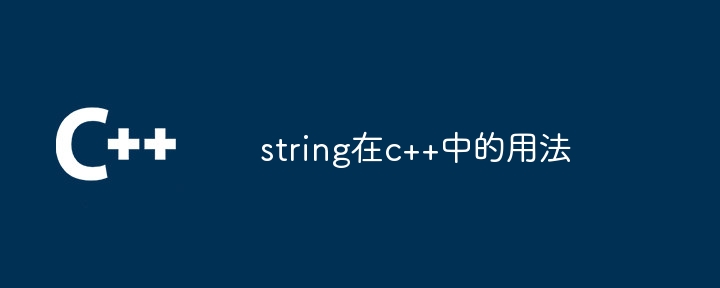
In C, string is a standard library type used to represent text. Its features include: dynamic arrays, variable-length character sets; string objects can be created through literals, copying, or C-style strings; elements can be accessed using the subscript operator or front()/back() methods; assignment operators, The append()/insert() method modifies string; provides operations such as substring search, string comparison, concatenation, case conversion, etc.; it is safer and more functional than C-style strings, but may incur additional memory overhead.

string Usage in C
string is a standard library type used in C to represent text data. It is a dynamic array that stores a variable-length collection of characters. string objects behave like C-style strings but provide richer functionality and safety.
Create a string object
There are several ways to create a string object:
string s1 = "Hello"; string s2(s1);
string s(cstr, length); Where cstr is a C-style string and length is the string length. Access string elements
s[index] Access the character at the specified position. Modify string
s = "New string";
s.append("!");
s.insert(index , "ABC");
Other string operations
Advantages
Disadvantages
The above is the detailed content of How to use string in c++. For more information, please follow other related articles on the PHP Chinese website!
 What are the differences between c++ and c language
What are the differences between c++ and c language
 Recommended learning order for c++ and python
Recommended learning order for c++ and python
 Cost-effectiveness analysis of learning python and c++
Cost-effectiveness analysis of learning python and c++
 Is c language the same as c++?
Is c language the same as c++?
 Which is better to learn first, c language or c++?
Which is better to learn first, c language or c++?
 The difference and connection between c language and c++
The difference and connection between c language and c++
 C++ software Chinese change tutorial
C++ software Chinese change tutorial
 Cost-effectiveness analysis of learning python, java and c++
Cost-effectiveness analysis of learning python, java and c++




